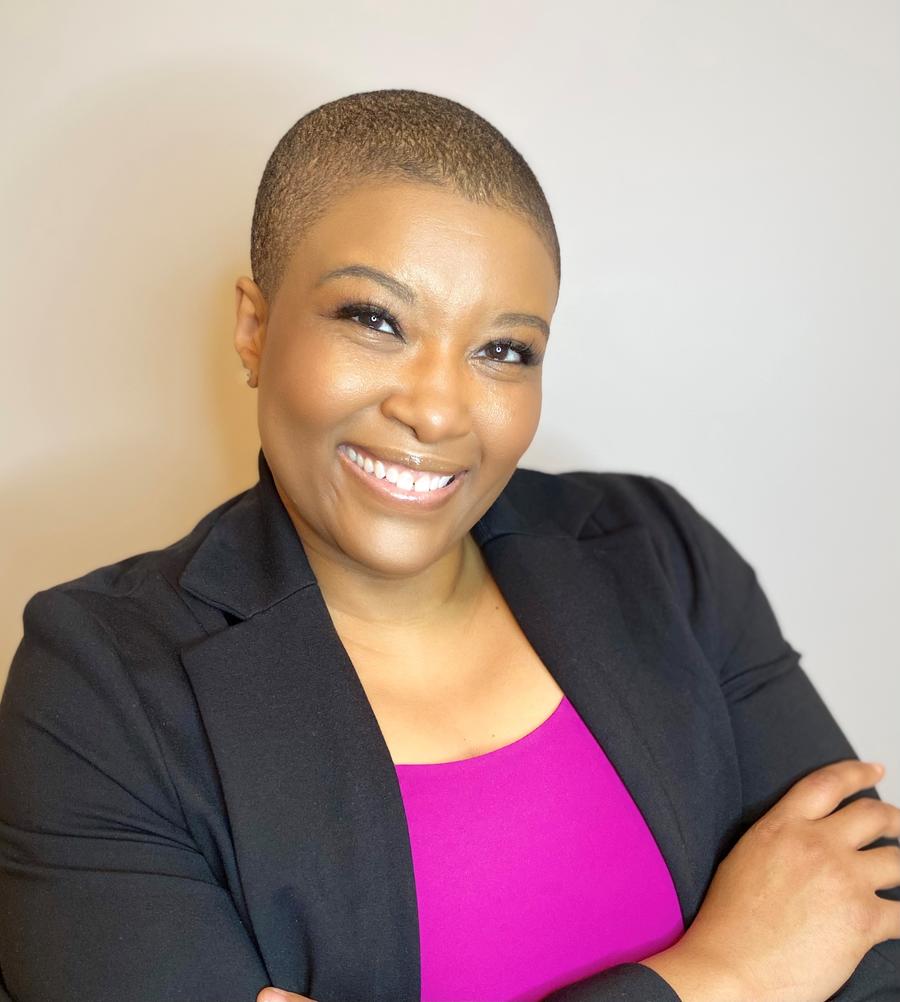Supporting diversity while closing the cybersecurity skills gap
Jo Justice decided to forgo earning a traditional high school diploma in favor of a GED. Working with computers had long attracted her, so Jo then attended a technical trade school to earn her associate degree in network administration. She’s since obtained a bachelor’s degree in cybersecurity and information assurance and is now pursuing a master’s degree in the same specialty.
While navigating her technology career, Jo continuously worked on relevant certifications to grow her skill set and elevate her prospects. Today, she serves as a business information security officer, a senior-level role supporting the digital modernization and U.S. commercial markets for Leidos.
Jo lacked cybersecurity experience when she joined Leidos 12 years ago as an entry-level junior security administrator. Since then, she’s received six promotions and earned the Leidos Lead | Excellence in Integrity: Rising Star Award.
“It’s been an amazing 12 years. I’ve grown tremendously thanks to the support and empowerment I’ve received throughout my career here,” she says. “One of the things I love most about working at Leidos is the clear career pathing opportunities that give us so much potential for advancement.”
For her part, Jo has taken advantage of several upskilling and reskilling programs. She was tapped to participate in the Leidos Executive Mentoring Program and selected for the Leidos IT Leadership Development Program.
Jo’s decision to specialize in cybersecurity
“I strongly believe in continuous self-development, and I knew that a career in cyber security would demand discipline and commitment,” Jo says. In fact, that’s a big part of what inspired her to specialize in the demanding field. Still, Jo needed a little push from a former manager to take things further. When she told her then-boss that she felt ready for more challenging projects, he said he’d keep it in mind.
“Two weeks later, he told me I’d be the lead engineer in developing and implementing an integration strategy and execution for endpoint cyber defense capabilities across about 25,000 endpoints during our huge IS&GS merger,” Jo says, noting that this was a huge turning point for her.
“My manager knew that I struggled with imposter syndrome, so even though I wasn’t sure that I was ready for the challenge, he knew I was,” Jo says. She took those feelings in stride and overcame all obstacles.
“It was an incredibly rewarding experience. I gained confidence in myself and my work, and then hungered for more.” Jo continued working on getting certifications that focused on various aspects of cyber security. She encourages others interested in a cybersecurity career to do the same.
“If you know you want to pursue this field, you can focus on getting certifications that support this career path,” she says. “Many organizations have even relaxed degree requirements, accepting certifications and experience in lieu of a degree.”
Closing the cybersecurity skills gap
Jo actively mentors other professionals who want to start and grow their cybersecurity careers with two key aims: to close the skills gap and improve the field’s diversity. She also serves as co-chair for the National Institute of Standards and Technology/NICE modernize talent management working group, which focuses on modernizing the talent management process to address cybersecurity skill gaps.
Learn more about the NIST/NICE working group
“There’s raw talent out there—people who want to be in cyber, but they don’t know how. That was me,” she says. “I didn’t have the guidance, especially before landing at Leidos. Now I want to give back by helping others speed their route and fill the gap.”
She points out that, according to the ISC2 Insights 2024 Report, only 22% of cyber security professionals are women, and that the field’s diversity does it a disservice.
How Jo builds value from diversity
“Diversity brings in a multitude of perspectives, and that’s what feeds creativity and innovation,” she says. “Our teams need people with different backgrounds and experiences to approach problems from different angles.”
She shares that diverse talent needs to be nurtured and given the same tools, opportunities and resources as everyone else to succeed. They should also feel welcomed, valued and respected on their teams so they can fully engage and commit to their work, she adds.
To achieve this, Jo has fostered open dialogue across her teams, creating a safe space that empowers individuals to use their voices. She has also purposefully assigned work that requires people from diverse backgrounds and skill sets to work together.
“I want both seasoned people and entry-level people to come together and share ideas,” she says. “I set the expectation that everyone be treated as equals. This starting point allows every person’s voice to be heard, regardless of their experiences,” Jo says.
Jo encourages everyone to ask questions without fear of judgment. She says the more you can make it seem commonplace to ask questions, the better chance you’ll have at fighting imposter syndrome on your teams. She has also implemented inclusive activities to strengthen each person’s sense of belonging, which, she says, improves collaboration within teams.
“Now each team has grown very close-knit, like an extended family that supports each other’s professional and personal lives. That’s how you innovate, create and build,” she says.
When one-on-one with her direct reports or mentees, Jo makes a point to ask them questions and listen well so they feel heard.
Why Jo plans to stay with Leidos
Beyond thriving on how Leidos has continually provided ways to learn and grow as well as opportunities to take on new challenges, Jo appreciates that its culture supports work-life balance.
“I’ve learned that you can excel at your career here while still setting healthy boundaries that benefit yourself and your family,” Jo says.
What Jo loves most about working in cybersecurity is its unpredictability. She enjoys the thrill of not knowing when a new challenge will present itself and is constantly preparing herself for whatever it may be.
“What I do know, though, is that I see myself staying in this field and at Leidos,” Jo says.




